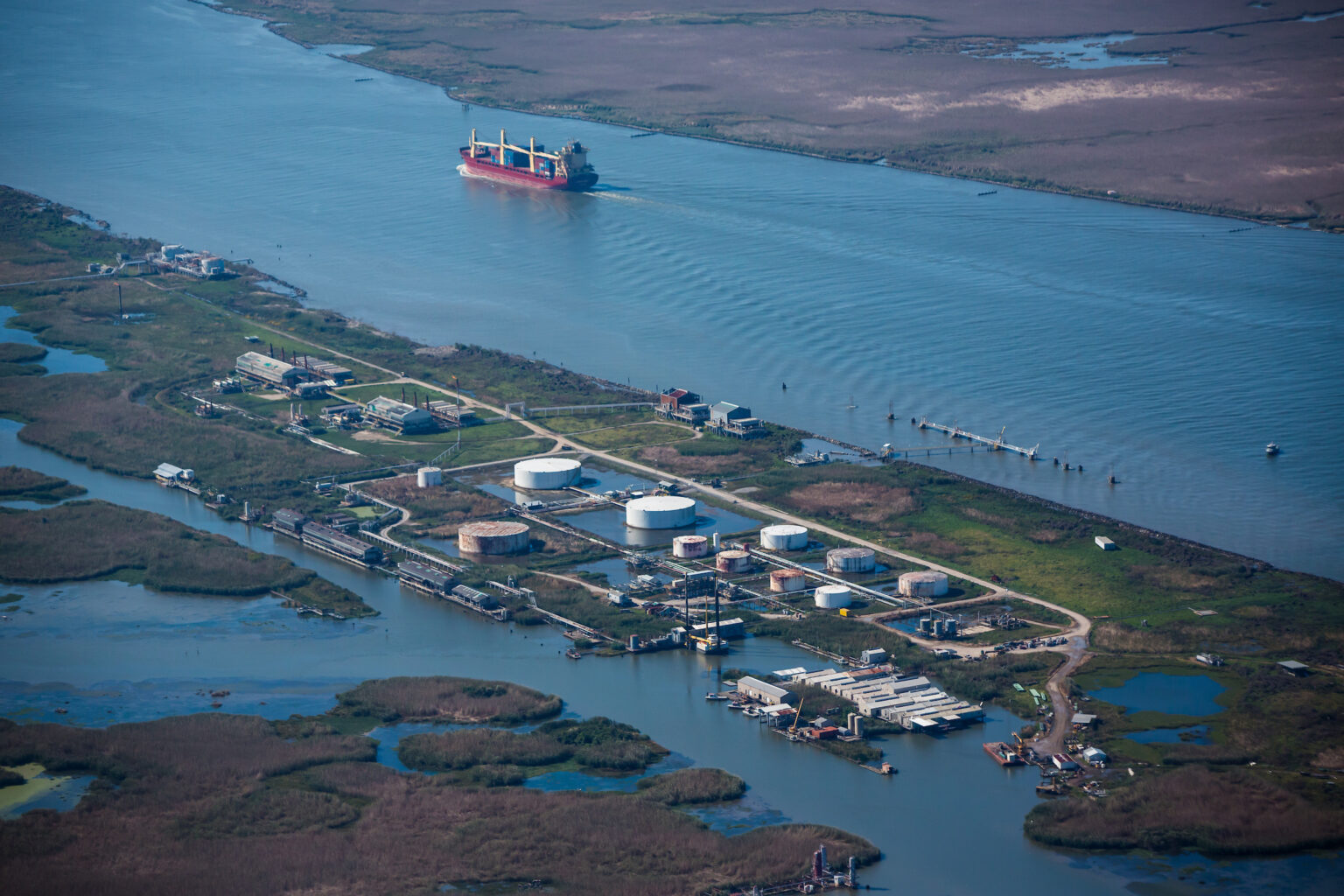This is a guest post by environmental communication professor and Louisiana native Ned Randolph.
I grew up in the shadow of the Mississippi River, whose mythology pressed upon my imagination.
Its culture inspired iconic works and political movements, while its agency resisted efforts to corral it.
When researching my book, Muddy Thinking in the Mississippi River Delta: A Call for Reclamation (University of California Press, 2024), I found myself wrestling with the river’s complex nature.
Beneath the popular renditions about the river that I grew up with was a storyline of mud – which is also the story of the climate crisis.
In the era of slavery, muddy swampland was viewed by New Orleans administrators as not only disease-ridden and worthless, but as a refuge for runaway “maroon” enslaved people.
Ridding the land of mud became a preoccupation by city officials. Drainage programs enabled urban development in New Orleans, expanded plantation agriculture, and allowed for shipment of commodities to the marketplace.
As the river and adjacent lands were being dredged and drained, so too was the political economy of slavery, as plantation and settler expansion followed land reclamation.
At one time, New Orleans was the largest trading center for enslaved people in America. “The echo of enslavement is everywhere,” Clint Smith writes in his 2021 book, How the Word Is Passed: A Reckoning with the History of Slavery Across America. “It is in the detailed architecture of some of the city’s oldest buildings, sculpted by enslaved hands. It is in the levees, originally built by enslaved labor.”
Enslaved people launched the 1811 German Coast Uprising, the largest slave rebellion in U.S. history, from a Louisiana sugar plantation on the banks of the Mississippi River, which is now crowded with colossal petrochemical plants.
Marjie Richard, who was awarded the Goldman Environmental Prize for getting Shell to pay resettlement costs for her Cancer Alley community, Old Diamond, once said: “If my ancestors were willing to be killed for standing up to slavery, I can surely stand up to Shell.”
I started writing about New Orleans in graduate school at the University of California, San Diego, because it offered an opportunity to visit home. We left New Orleans in 2006, less than a year after Hurricane Katrina.
When we returned for good in 2018, through multiple hurricanes and Covid, I became a participant in civic life, where daily conversations revolve around faltering public services: missed garbage pickups, underfunded city departments, boil water advisories, buckling streets, and a kind of permeating malaise.
This is what the climate emergency looks like.
The year 2023 brought a once unthinkable drought to this subtropical setting. Smog from a parched marshland fire here in October caused a 160-car pileup on Interstate 55 that closed the highway for days.
Outside the levees, which were rebuilt after Katrina, the state loses land every day due to sediment constraints on the Mississippi River and devastating dredging and drilling by the oil and gas industry. Coastal Louisiana has lost about 1,900 square miles of land since the 1930s, according to the Louisiana Coastal Protection and Restoration Authority. A 2023 Louisiana State University study found that only about 20 percent of the land loss is due to dam building, while levee building and extraction of oil and gas each account for about 40 percent of the Mississippi River Delta land loss.
Lately, state officials have used the climate crisis to embrace carbon capture projects, which is a dubious climate mitigation tool. This, while supporting oil and gas production, whose royalties fund coastal restoration projects.
This contradiction is symbolized in the moniker of the “working coast.”
So many Louisianans are here because they, their parents, or grandparents were employed by the oil and gas industry. I’m one of them. My grandfather landed in Baton Rouge in 1932 aboard a steamer for a job in the Standard Oil refinery.
Louisiana hosts a seafood industry dependent on a healthy estuary and an oil and gas industry threatening that ecosystem. Yet, stopping the rigs is almost as unthinkable here as the disappearance of capitalism itself.
In January, the Biden administration paused certain liquefied natural gas (LNG) projects to address greenhouse emissions from methane. Officials from Louisiana, which supplies more than half of LNG exports from the U.S., were quick to criticize him. In February, Louisiana’s two Republican U.S. senators, John Kennedy and Bill Cassidy, were among 26 senators who wrote a letter to the president saying that limiting domestic production will send buyers to countries with fewer environmental regulations.
“You should be championing — not undermining — American LNG exports and the environmental, economic, and national security benefits to the United States and our allies,” they wrote.
Our conservative governor, Jeff Landry, chimed in on X, formerly Twitter: “It is a gut punch to our hard-working men and women, and we will not stand for this.”
This mentality is consuming the very ground beneath Louisiana’s feet and discarding vulnerable communities as if they were mud.
New Orleans and south Louisiana stand as a harbinger for global warming and environmental injustice — which means that as researchers and activists we can’t take our eyes off the catastrophe.
A Louisiana native, Ned Randolph teaches environmental communication at Tulane University in New Orleans.
Subscribe to our newsletter
Stay up to date with DeSmog news and alerts







